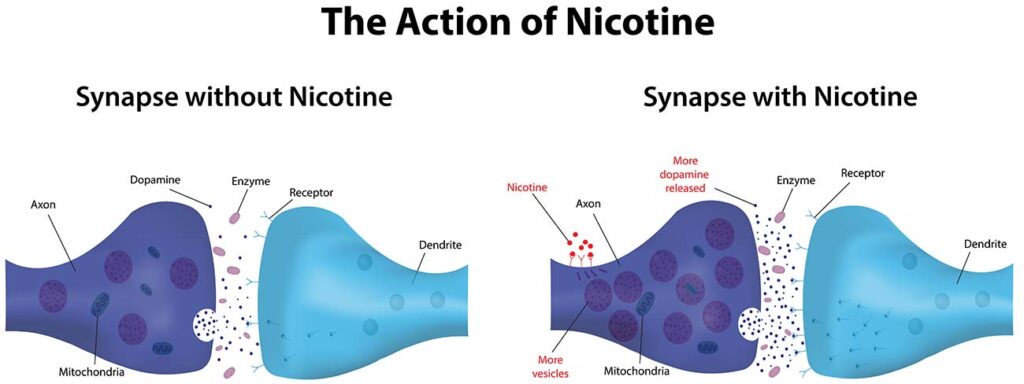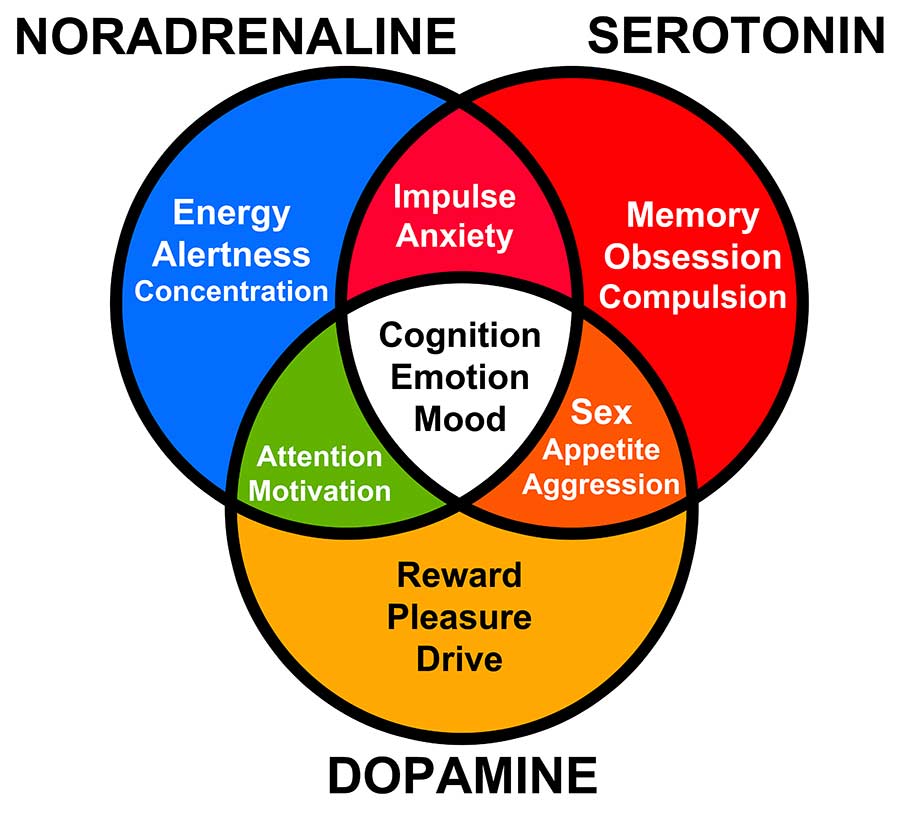What will you experience when you stop smoking? Will the nicotine withdrawal symptoms make you struggle?
Is withdrawal hard and painful?
Not necessarily. Each smoker has a different experience during withdrawal.
Keep in mind that every quit attempt is different. Just because last time was hard, it doesn’t mean this time won’t be easy.
Some people may experience nicotine withdrawal symptoms, at least for a few days. Those who have smoked heavily for years are more likely to have intense symptoms. While others may have no symptoms at all, even if they used to be heavy smokers.
One of the CBQ Method principles is that “How you experience the nicotine withdrawal depends on 1) your overall health 2) your mindset and 3) your nutrition.”
The problem is that the thought of going through severe tobacco withdrawal can discourage you from making a serious attempt to quit. And if you do quit and experience signs of withdrawal, you may be tempted to start smoking again.
To avoid that, you need to know what are the side effects of quitting smoking, why they occur, and how to face them.
Because when you know what to expect, you can prepare yourself and have a better chance of quitting successfully.
So keep reading to learn what to expect during nicotine withdrawal.
What Causes Nicotine Withdrawal Symptoms
The definition of nicotine withdrawal is this: you experience nicotine withdrawal symptoms when you stop taking nicotine, and your body and mind start adjusting back to normal health.
In other words, the withdrawal symptoms are signs you’re getting over the addiction – physically and mentally.
(Nicotine replacement products can reduce the intensity but also prolong the nicotine withdrawal.)
To better understand the signs of nicotine withdrawal, you first need to know about the physical and psychological dependence on nicotine.
Physical Dependence on Nicotine
If you smoke every day, you most likely have some physical dependence on nicotine.
When you inhale tobacco smoke, nicotine quickly passes into your bloodstream. It reaches your brain in just seconds.
Once in the brain, nicotine attaches itself to some of your brain cells and tricks them into releasing neurotransmitters. Neurotransmitters are chemical substances that convey nerve impulses.
When it comes to smoking, the most important of these neurochemicals is dopamine.

Dopamine
Dopamine is very important to feelings of pleasure. A dopamine release feels like an emotional reward.
And a higher level of dopamine goes hand in hand with a better mood and feelings of wellbeing.
It takes only about 10 seconds for nicotine to reach your brain after you inhale, so the reward is almost immediate.
This artificial reward doesn’t last long. That’s why you crave the next cigarette.
Do smokers feel happier than non-smokers because of the dopamine release?
Not at all. A smoker’s brain doesn’t release more dopamine than a non-smoker’s brain. They release dopamine at different times.
Non-smokers release dopamine when they are genuinely happy and rewarded while smokers release most of their dopamine when they smoke.
As a result, the natural reservoirs of the neurotransmitter are depleted.
Over time, a smoker’s brain relies on nicotine to release dopamine. Also, it builds tolerance and needs a larger dose of nicotine before it will release any dopamine. That’s why decades of heavy smoking can change the physical structure of the brain.
Fortunately, dopamine levels bounce back when you stop smoking.
Serotonin
Nicotine also controls the release of serotonin, another neuro-chemical.
Serotonin, with dopamine, affect your mood and appetite. That’s why quitting smoking can contribute to increased appetite and mood changes. It’s because your dopamine and serotonin levels are lower than usual for a while.
Adrenaline
Nicotine stimulates the adrenal glands and causes a release of epinephrine. That’s also known as adrenaline. It’s a central nervous system stimulant, and it produces a “fight or flight” response.
Blood pressure goes up. Heart and breathing rates speed up. The release of adrenaline makes you feel more alert at the cost of overworking your heart.
But, as important as adrenaline is, it’s the release of dopamine in the brain that makes you physically and mentally dependent on nicotine.

Is your physical dependence on nicotine genetic?
Some people inherit genes that make them more likely to be heavy smokers and have more intense cigarette withdrawal symptoms.
Their brain creates more nicotine receptors so it uses up more dopamine each time they inhale. This is called upregulation. The more you smoke, the more nicotine receptors you create which makes you want to smoke even more.
While other smokers can’t generate as many nicotine receptors so they physically can’t smoke more than a certain number of cigarettes a day. These are the lighter smokers.
This genetic difference is the reason why heavy smokers find it hard to become occasional smokers.
But even if your genes are to blame for the level of your dependence, you can still stop smoking just as successfully and cope with the cigarette withdrawal symptoms. Because as soon as you cut off nicotine, your additional receptors will start to perish.
Psychological Dependence on Nicotine
It’s the psychological dependence on nicotine that you may find harder to manage.
Because the mental addiction causes intense thoughts about smoking, and the psychological withdrawal symptoms include difficulty concentrating, anxiety, irritability, and boredom, all of which can make smoking harder to resist.
You may be used to reaching for a cigarette whenever you feel stress, anger, or anxiety. Now you need to find a better way to handle your emotions.
That lower dopamine level is important, too. You’re not getting the feelings of relief that came with the dopamine releases. Until your brain adjusts, you may have mood swings or strong emotions.
Depending on your frame of mind, these psychological symptoms often last longer than the physical symptoms, but they too will pass.
Timeline of Nicotine Withdrawal Symptoms and How to Face Them
Below is a list of withdrawal symptoms and how each heals your body. You may experience all, some, or none of these, and the length and intensity will vary from person to person, but knowing what symptoms are and what they mean can help you shift your mindset and see them as freedom and healing signs.

Whether you quit smoking cold turkey or gradually, you will experience some symptoms. Below is a list of all the mental and physical withdrawal symptoms and a timeline for each symptom. The duration of each symptom may vary from one person to another, and you most likely won’t experience all of these side effects. But it’s best to save this list and come back to it whenever you need to.
(Important: The advice below is not medical advice. You know your body better than anyone. If your symptoms are different or persist, they may not be because of quitting smoking, so contact your doctor.)
Insomnia and Sleep Disruption
Lasts 2-3 weeks
Your sleep pattern may change until your body adjusts back to normal health. If you have insomnia, increase your exercise, cut off caffeine after 5 pm, sleep with relaxing sounds (the ocean or the rain), or do deep breathing.
If worries and negative thoughts keep you up at night, do the following:
- Write the intrusive thought on a piece of paper to get it out of your mind.
- Write next to the thought “My mind is thinking that__(insert thought)_”. This will help you get perspective.
- Look at that paper during the day to see if there’s something you can do about that worry. If you can, do it. If you can’t do anything about it, why worry?

Smoking Dreams
Can occur a few times within the first 6 months to 1 year
If you dream about smoking, it’s a normal part of the cognitive and emotional healing that happens after quitting nicotine.
Smoking dreams are not a sign that you want to smoke. On the contrary, smoking dreams usually feel like nightmares and you will likely wake up feeling glad you’re smoke-free.
Tightness in the Chest or Chest Pains after Quitting Smoking
Lasts 1-2 weeks
Having chest pains after you quit smoking cold turkey or cut down gradually can be due to sore muscles from coughing.
Drink a lot of water and do deep breathing.
Headaches, Dizziness, Fatigue & Tiredness
Lasts 1 to 4 weeks
When you quit, your body starts getting more oxygen and it takes a bit of time to get used to it and adjust. This can cause headaches, dizziness, tiredness, fatigue, or light-headedness.
Nicotine releases adrenaline that put your body in constant tension and stress. So if you feel tired, consider that your body might be trying to get the rest it was missing because you used to smoke.
Another reason you experience headaches, tiredness or brain fog is that you have lower sugar levels in your blood. Nicotine inhibits the release of insulin from the pancreas, which makes you have more sugar in your blood. So when you quit, you have a temporary deficiency which can make you feel weak, confused or dizzy.
To feel better, drink fresh orange juice to increase the sugar levels in your blood, exercise, drink a lot of water, and rest.
Difficulty Concentrating
Lasts up to 2 weeks
Lack of concentration is due to the brain’s increased oxygen flow. And due to the craving thoughts that keep popping up in your mind and interrupt you.
As a smoker, you used to respond to these thoughts by smoking. Now you don’t, so you experience this as a lack of concentration.
When a craving thought pops up, reply back to yourself and say “Later craving, I’m busy now.” Or replace the thought “I want a cigarette” with “ I want
Within a few weeks, you will be able to concentrate better as a non-smoker because your brain will get enough oxygen and you won’t have to keep interrupting your train of thought to smoke.
Tingling in Hands and Feet
Occurs within the first 3 months
You experience tingling in your hands and feet because more oxygen is going into your blood. This is a positive sign your blood flow is improving. However, if it persists, talk to your doctor.
Coughing, Sore Throat & Shortness of Breath after Quitting Smoking
Lasts 1-5 days
When you quit, your respiratory system is trying to clear out all the mucus and residues of smoking left in your body. That might cause shortness of breath, cough, phlegm, sore throat, or runny nose.
Drink plenty of fluids: water, water with lemon and honey are great. You can learn more about cough before and after quitting smoking here.

Constipation
Lasts 1-2 weeks
You may experience changes in your bowel movements, including constipation or gas. These symptoms will go away by themselves in time. If you overthink it, you might cause anxiety which could prolong constipation.
Drink 6-8 glasses of water every day, eat fruits and exercise. If it persists, ask your pharmacist for a natural aid that can help.
Mouth Ulcers
Lasts 2 weeks
Though quite annoying, mouth ulcers and sensitive gums are signs that the blood flow in your mouth and oral hygiene are improving. It affects 2 out of 5 people.
Hunger and Weight Gain
Lasts 3 months
Quitting smoking might increase your appetite because your senses of taste and smell improve so your food smells and tastes better.
Also, the cravings feel a lot like hunger so you might get tricked into eating without being hungry and end up consuming more calories.
Keep in mind that quitting smoking itself does not cause weight gain. Substituting cigarettes with food does.
To avoid gaining weight, exercise daily and eat at specific times every day. If you feel hungry outside those times drink plenty of water, a protein shake, or eat an apple and snacks like carrot and celery.
Boredom
Lasts 2 weeks
You might feel bored, restless, or feel the need to keep your hands busy.
Remember that smoking did not make your life interesting and only kept you from trying new things. Use this as an opportunity to catch up on errands, work, and hobbies. Start making a list of all the things you want to do this year and start ticking things off. Here are 6 things to do instead of smoking.
Anger, Mood Swings & Irritability
Lasts up to 4 weeks

Anger is part of the grieving process. You had an attachment to smoking and breaking it might bring anger.
When and if you feel angry, remember that smoking made you feel that way. Not stopping smoking.
Once you catch yourself feeling irritated, acknowledge it and don’t bottle it up. Otherwise, you might snap at your friends and loved ones and blame quitting for it.
It’s okay to feel angry, whether you are a smoker or a non-smoker. When you do, take a few deep breaths and report your feelings; don’t act on them.
This will make you feel good and even bring you closer to your loved ones. You can learn 3 ways to manage your emotions without smoking here.
Anxiety
Lasts up to 4 weeks
Smoking increases anxiety as it 1) tenses up your body 2) makes it tired from trying to fight all the chemicals and 3) causes constant cravings.
When you smoke you don’t relieve your anxiety. Instead, you relieve the cigarette cravings, which makes you feel less tense. That’s why you may feel smoking helps with your anxiety.
Even though smoking is an ineffective coping mechanism, it’s probably the only one you’ve ever known. But that doesn’t mean you can’t learn how to cope in other ways. You can.
When you smoke, you inhale deeply and slowly. So you feel relaxed thinking the cigarette helped. But in reality, it was the deep and slow breathing that relaxed you.
And you can relax without the cigarette, just by breathing deeply as if you were smoking a cigarette. So when you feel anxious, take deep and long breaths.
Depression & Sadness
Lasts up to 4 weeks
When you are nicotine-free the nicotine receptors in your brain start to perish, and your dopamine pathways start regulating and producing dopamine naturally – without relying on nicotine.
During that period, you might momentarily feel down, lost or lonely. Don’t let your mind trick you. You have achieved one of the most important things in your life. Keep yourself busy and remember that your life can only get better.
Quitting smoking reduces depression in the long term, according to research. When you have a bad day, see it as an isolated event that’s unrelated to quitting smoking. Everyone has bad days; smokers, non-smokers, and never smokers. Choose a healthy way to cope. Call a friend, share your thoughts and feelings, take a walk, exercise, plan a vacation, learn something new or have a new experience. Keep living.
How Long Do Nicotine Withdrawal Symptoms Last?
The withdrawal symptoms from nicotine do not always last long. Symptoms are strongest in the first week after you quit smoking and you can expect them to start about 4 to 24 hours after your last cigarette.
Most smokers find the first three days to be the most difficult. The third, fourth or fifth day without smoking is usually the hardest. For many people, that’s when symptoms peak.
After that, you can expect any signs of nicotine withdrawal to ease up over a period of 3 to 4 weeks. Physical symptoms–headaches, tremors, difficulty sleeping–have usually stopped by this time.
If you still have any nicotine withdrawal symptoms after that, they’re likely to be related to the psychological dependence –irritability, anxiety, mood swings, etc.
These mental and psychological symptoms will last longer if you feel deprived. They’ll pass more quickly if you have a positive mindset. Try to focus on the benefits of quitting smoking, not the illusion of pleasure you used to get from it.
How Long Cravings Last
There are 2 types of cravings: mental and physical.
The physical cravings are just a twitch, a hunger feeling in your stomach when your body is low on nicotine.
Mental cravings are just positive thoughts about smoking that create positive feelings about smoking. That’s another important principle of the CBQ Method.
Cravings are thoughts like “I need to smoke”, “One more cigarette won’t matter” or “A cigarette would make me feel better”
The physical cravings are brief. They usually last for only 3 to 10 minutes and go away 3 to 5 days after you stop smoking because, by that time, almost all nicotine is out of your body. So if you stay nicotine-free for 5 days or more, you’re done with the physical addiction and the physical cravings.
Mental cravings are a bit different. Because they are thoughts, they can last for hours, months, and even years if you don’t handle them. Mental cravings go away when you change how you think about smoking.
Even after weeks or months without smoking, certain triggers can lead to a mental craving for a cigarette.
That trigger might be a certain activity (like having an alcoholic drink), an intense emotion (anxiety or anger, for example) or just watching other people smoke.
Triggers vary from one person to another. So it’s important to be aware of your triggers and have a plan for managing them.
How Fast Your Body Expels Nicotine
Nicotine has a half-life of about 2 hours. Half-life is the amount of time it takes for 50 percent of a substance to be removed from the body.
Nicotine’s half-life is very short; Your body takes 2 hours to remove 50 percent of the nicotine you inhale or chew.
Once nicotine is absorbed, it’s metabolized or broken down by liver enzymes. Then it’s eliminated from the body in the urine. 3 to 5 days after the last cigarette, nicotine has been eliminated from the body and the nicotine withdrawal symptoms peak.
As with almost everything else, though, the time varies from person to person.
The half-life of nicotine may be a little longer for heavy smokers or people who smoked for many years. It may also be longer in people over age 65. This means it will take a bit longer for nicotine to be removed from the body. The half-life of nicotine is likely to be somewhat shorter in women than in men, which means that women may expel nicotine faster than men.
How Intense Will Withdrawal Be?
Everyone experiences withdrawal differently. Some people have mild symptoms, while others feel great discomfort. For some, cravings are mild, while for others, cravings are intense.
Some people find that their symptoms and cravings last for only a few days, while others may find they last for several weeks.
It’s important to remember that, unpleasant as nicotine withdrawal symptoms are, they will lessen with time.
Are Nicotine Withdrawal Symptoms Dangerous?
Of course, not. Withdrawal is not any worse than a common cold.
Different people experience different symptoms but you can view any signs of withdrawal as signs of freedom and healing.
If you’re going through withdrawal it means you are doing things right. If you don’t experience any symptoms then how can you know if you’re getting rid of the nicotine?

Nicotine Withdrawal Symptoms Will Pass
While you may experience withdrawal symptoms from nicotine when you stop smoking, don’t let that deter you.
The symptoms will pass, they’re manageable and they won’t cause you any harm.
Physical symptoms are likely to be strongest in the first 5 days and then lessen. Insomnia, headache, tremors, and any other physical symptoms usually stop completely within 3 to 4 weeks.
Psychological symptoms like anxiety, difficulty concentrating and mood swings may last longer, but they too will pass.
Cravings may recur, but each craving episode is likely to last just a few seconds.
With time, all of the tobacco withdrawal symptoms will pass and your body will be well on its way to recovery from the harmful effects of smoking.
Health Improvement Starts Almost Immediately
It’s important to realize that the nicotine withdrawal symptoms are not at all harmful to your body.
Just the opposite is true. Your body very quickly begins to recover from the harmful effects of smoking. And that’s true even if you were a heavy smoker.
In just 20 minutes, your elevated pulse rate and blood pressure begin to return to normal.
In about 12 hours, the carbon monoxide level in your blood will return to normal and your body tissues will be getting more oxygen.
Within days, your lung function begins to improve and breathing becomes easier. The longer the time you go without smoking, the greater your health benefits.
Even the risk of lung cancer eventually drops to the same risk as for someone who has never smoked.
Most doctors agree that quitting smoking is the single most important action you can take to improve your health. The National Institutes of Health reports that there’s a lower risk of cardiovascular disease, cancer
Remember, every moment of withdrawal equals years of health with your loved ones.

